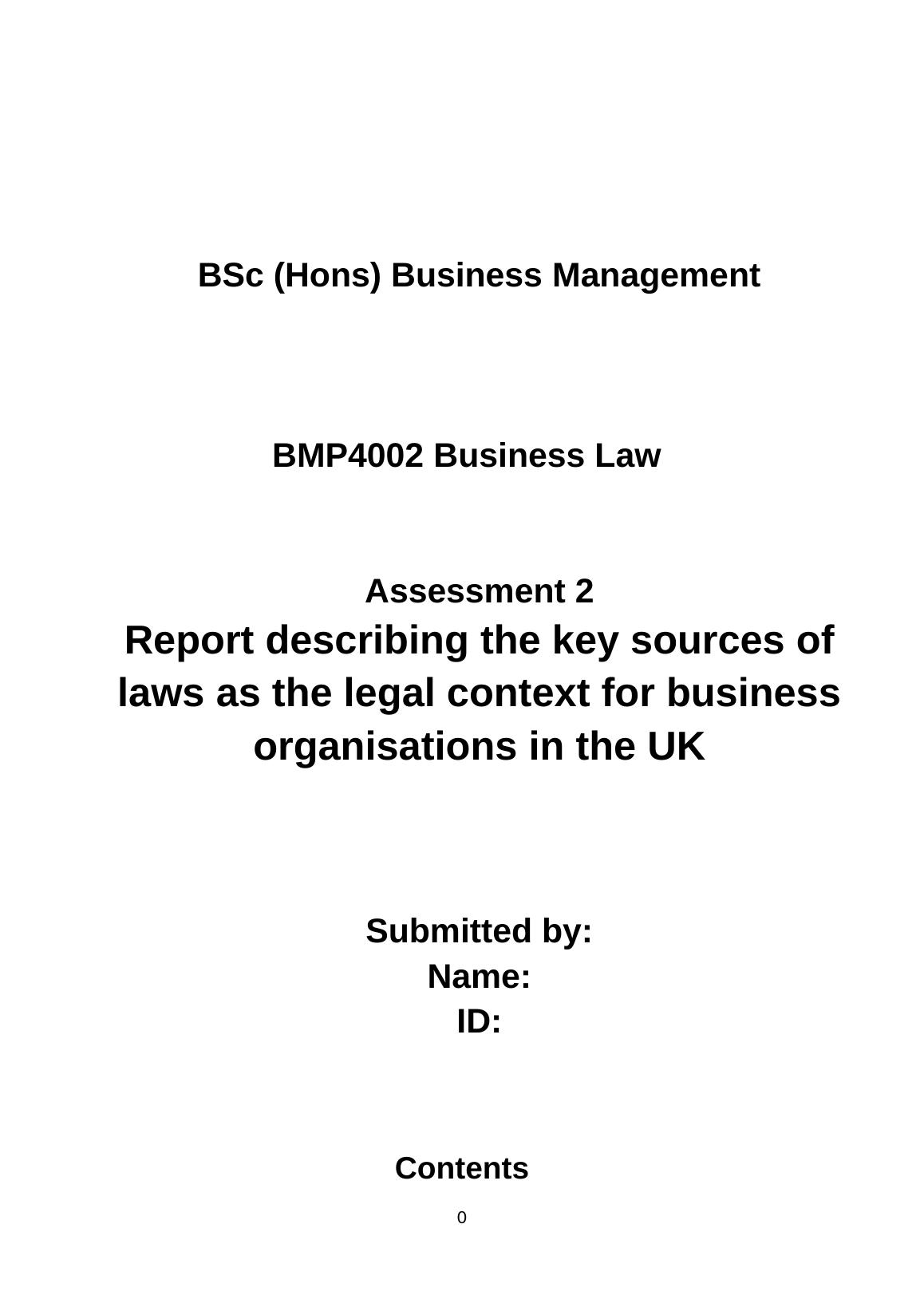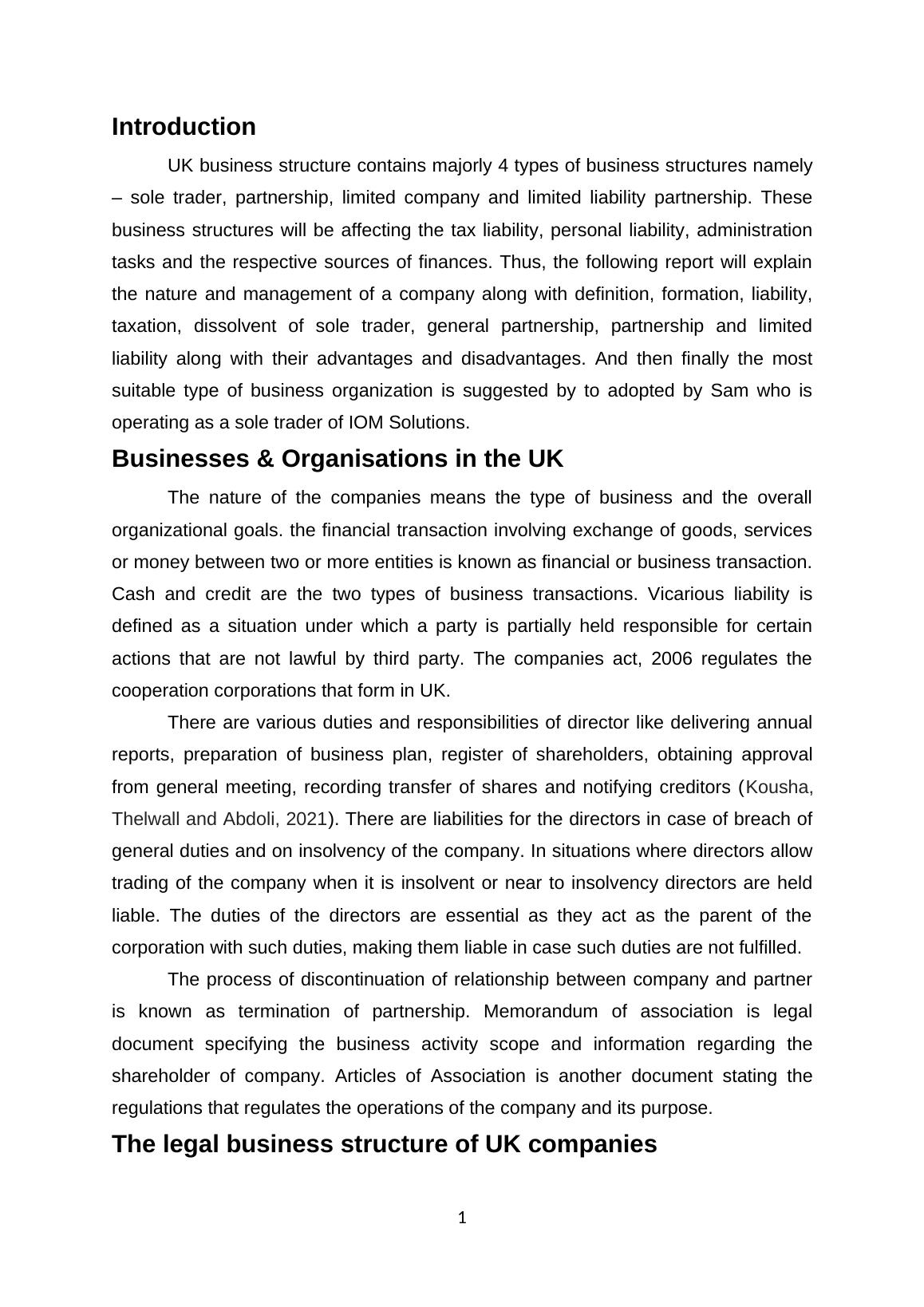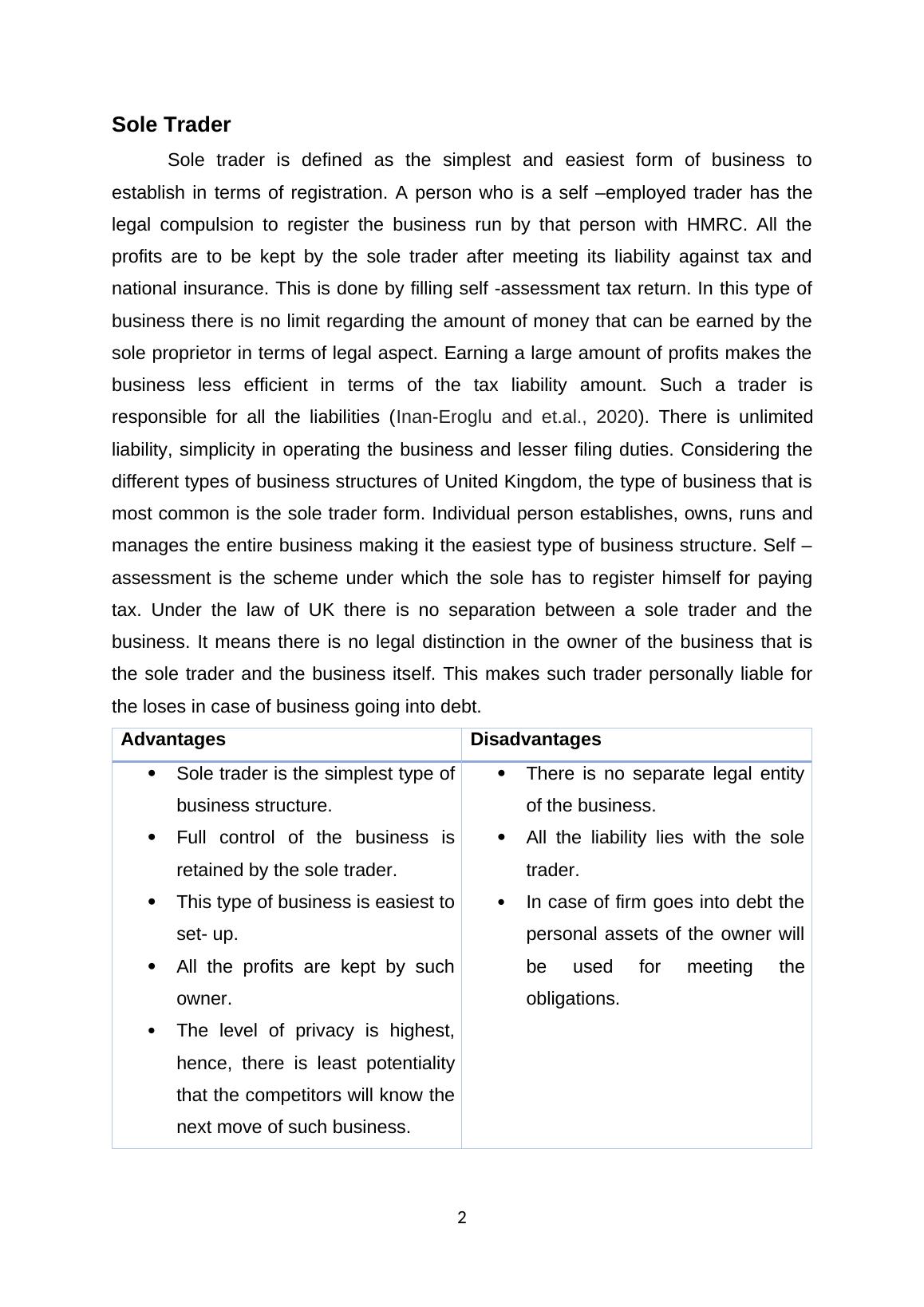Nature and Management of Business Organizations in the UK
8 Pages2653 Words429 Views
Added on 2023-06-08
About This Document
This report explains the nature and management of different types of business organizations in the UK like sole trader, partnership, limited company and limited liability partnership. It also describes the key sources of laws as the legal context for business organizations in the UK. The report recommends limited liability company as the most suitable form of business organization for Sam who is a sole trader of IOM Solutions.
Nature and Management of Business Organizations in the UK
Added on 2023-06-08
ShareRelated Documents
End of preview
Want to access all the pages? Upload your documents or become a member.
Business Law: Legal Business Structure of UK Companies
|8
|2468
|409
Company Law: Characteristics, Functions, Regulatory Frameworks, and Policy Issues
|12
|2775
|478
Key Sources of Laws for Business Organisations in the UK
|10
|2537
|149
Company Law: Characteristics, Functions, and Regulatory Frameworks
|12
|3823
|96
Key Sources of Laws for Business Organisations in the UK
|8
|2484
|283
Key Sources of Laws for Business Organizations in the UK
|8
|2403
|147



